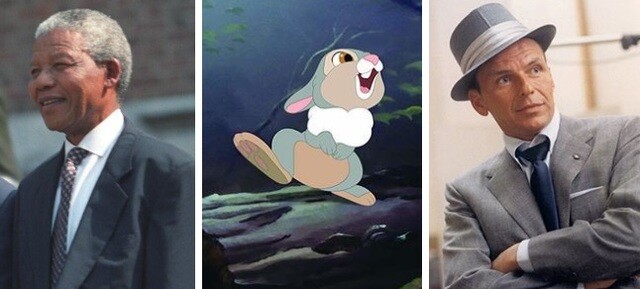General conference is arguably one of the best times of the year for Latter-day Saints. We get to listen to our leaders and dear prophet talk about various topics and learn about the gospel. The speakers are inspired in their messages they share, and some even throw in a few quotes from famous people and historical figures every so often. Here are a few times when famous people were mentioned in general conference:
1. Theodore Roosevelt

Thomas S. Monson quoted Theodore Roosevelt in his April 1987 talk, “The Will Within”:
"It is not the critic who counts, not the man who points out how the strong man stumbles, or where the doer of deeds could have done them better. The credit belongs to the man who is actually in the arena.”
2. Thumper from Bambi
In his April 1999 conference address “Your Name is Safe in Our Home,” Elder Cree-L Kofford quoted Thumper from the well-known Disney movie, Bambi:
“One day Bambi was in the forest learning to walk, and he fell down. Thumper just couldn’t resist the temptation. ‘He doesn’t walk very good, does he?’ Thumper blurted out. His mother felt very bad and said, ‘What did your father tell you this morning?’ And then Thumper, looking down at his feet and kind of shifting his weight, said, ‘If you can’t say somethin’ nice, don’t say nothin’ at all.’ That’s a good piece of advice that all of us need to follow.”
► You may also like: 9 Disney Mentions in General Conference
3. Nelson Mandela
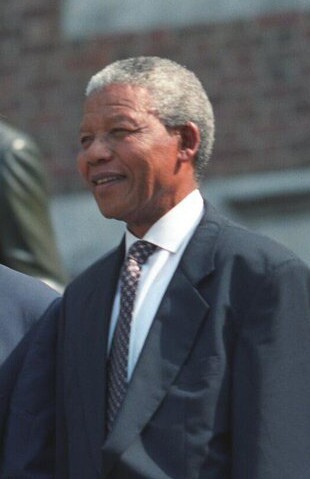
Dale G. Renlund quoted Nelson Mandela on forgiveness in his April 2015 talk, “Latter-day Saints Keep on Trying":
“[Nelson Mandela’s] forgiveness of those who had imprisoned him was remarkable. He received widespread acclaim and praise. Mandela frequently deflected accolades by saying, 'I’m no saint—that is, unless you think a saint is a sinner who keeps on trying.'
“This statement—‘a saint is a sinner who keeps on trying’—should reassure and encourage members of the Church. Although we are referred to as ‘Latter-day Saints,’ we sometimes flinch at this reference. The term Saints is commonly used to designate those who have achieved an elevated state of holiness or even perfection. And we know perfectly well that we are not perfect.”
4. Thomas Edison

Lynn G. Robbins reminded us of one of Thomas Edison’s famous quotes in his April 2018 talk, “Until Seventy Times Seven”:
“With his invention of the light bulb, Thomas Edison purportedly said, ‘I didn’t fail 1,000 times. The light bulb was an invention with 1,000 steps.’ Charles F. Kettering called failures ‘finger posts on the road to achievement.’ Hopefully, each mistake we make becomes a lesson in wisdom, turning stumbling blocks into stepping-stones.”
5. Ralph Waldo Emerson
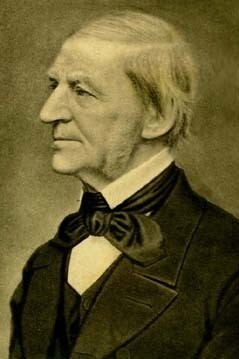
Jeffrey R. Holland has quoted many poets in his conference talks over the years, including Ralph Waldo Emerson in his April 2018 talk, “Be With and Strengthen Them”:
“To paraphrase Ralph Waldo Emerson, the most memorable moments in life are those in which we feel the rush of revelation. President Nelson, I don’t know how many more ‘rushes’ we can handle this weekend. Some of us have weak hearts. But as I think about it, you can take care of that too. What a prophet!”
6. The Cheshire Cat from Alice in Wonderland
Lewis Carroll’s Alice in Wonderland has a number of gospel parallels, and President Thomas S. Monson shared this one in his October 2010 address, “The Three Rs of Choice”:
“Let us not find ourselves as indecisive as is Alice in Lewis Carroll’s classic Alice’s Adventures in Wonderland. You will remember that she comes to a crossroads with two paths before her, each stretching onward but in opposite directions. She is confronted by the Cheshire cat, of whom Alice asks, ‘Which path shall I follow?’
“The cat answers, ‘That depends where you want to go. If you do not know where you want to go, it doesn’t matter which path you take.’
“Unlike Alice, we all know where we want to go, and it does matter which way we go, for by choosing our path, we choose our destination.”
7. William Shakespeare

Shakespeare quotes have made their way into many conference talks, and Thomas S. Monson shared these words in his April 1993 talk, “Gifts:”
“The passport to peace is the practice of prayer. The feelings of the heart, humbly expressed rather than a mere recitation of words, provide the peace we seek. In Shakespeare’s Hamlet, the wicked King Claudius kneels and tries to pray, but he rises and says, 'My words fly up, my thoughts remain below: /Words without thoughts never to heaven go.'”
8. Rodgers and Hammerstein
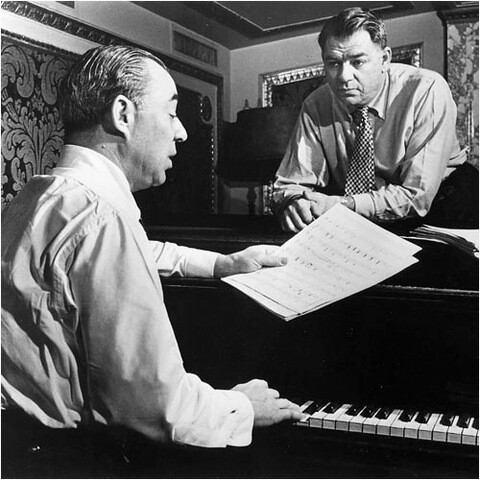
Gordon B. Hinckley quoted Rodgers and Hammerstein's The Sound of Music in his October 1972 talk, “Watch the Switches in Your Life”:
“This is a package of Edelweiss seed. The seeds are tiny, like small dry flecks of pepper. But on the face of the package is pictured what they might become—the mature plant, the flower that grows high in the Swiss and Austrian Alps, that weathers the storms that rage through those mountains, that blooms beneath the snow, that gives beauty to Alpine slopes and meadows. These tiny seeds have within them the potential for vigorous and beautiful life. They have become the symbol of a sturdy people—‘small and white, clean and bright,’ blessing a great land forever.”
9. William Wordsworth
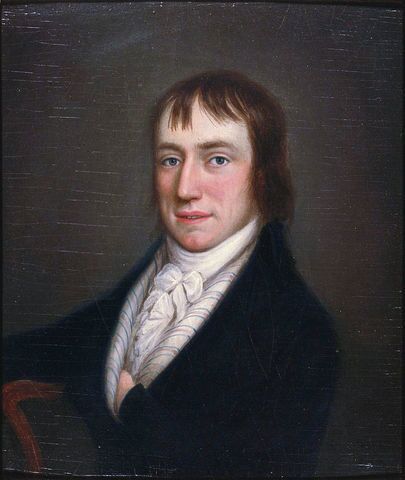
Jeffrey R. Holland quoted British poet William Wordsworth in his October 2000 address, “Sanctify Yourselves":
“Nearly 200 years ago William Wordsworth wrote that ‘the world is too much with us.’ What on earth would he say about the encroachments pressing in on your souls and sensibilities today?”
Thomas S. Monson also quoted William Wordsworth in his April 2012 talk, “The Race of Life”:
“We note that inspired poets have, for our contemplation of this subject, written moving messages and recorded transcendent thoughts. William Wordsworth penned the truth:
'Our birth is but a sleep and a forgetting:
The soul that rises with us, or life’s Star,
Hath had elsewhere its setting,
And cometh from afar:
Not in entire forgetfulness,
And not in utter nakedness,
But trailing clouds of glory do we come
From God, who is our home:
Heaven lies about us in our infancy!'
"Parents ponder their responsibility to teach, to inspire, and to provide guidance, direction, and example.”
10. Lucy from Peanuts
Quinten L. Cook quoted Lucy from Peanuts in his October 2014 address, “Choose Wisely”:
“I became a fan of Charles Schulz and his creation—Peanuts, with Charlie Brown, Lucy, Snoopy, and other wonderful characters.
“One of my favorite comic strips involved Lucy. As I remember it, Charlie Brown’s baseball team was in an important game—Lucy was playing right field, and a high ball was hit to her. The bases were loaded, and it was the last of the ninth inning. If Lucy caught the ball, her team would win. If Lucy dropped the ball, the other team would win.
“As could happen only in a comic strip, the entire team surrounded Lucy as the ball came down. Lucy was thinking, ‘If I catch the ball, I will be the hero; if I don’t, I will be the goat.’
“The ball came down, and as her teammates eagerly looked on, Lucy dropped the ball. Charlie Brown threw his glove to the ground in disgust. Lucy then looked at her teammates, put her hands on her hips, and said, ‘How do you expect me to catch the ball when I am worried about our country’s foreign policy?’
“This was one of many fly balls Lucy dropped through the years, and she had a new excuse each time. While always humorous, Lucy’s excuses were rationalizations; they were untrue reasons for her failure to catch the ball.”
11. C.S. Lewis
C.S. Lewis comes up fairly frequently in general conference talks and his words are incredibly inspiring. Elder Marvin J. Ashton quoted him in his October 1979 talk, “Progress through Change”:
“C.S. Lewis indicated there is often pin in change when he wrote of God’s expectations for his children:
‘Imagine yourself as a living house. God comes in to rebuild that house. At first, perhaps, you can understand what he is doing. He is getting the drains right and stopping the leaks in the roof and so on: you knew those jobs needed doing and so you are not surprised. But presently he starts knocking the house about in a way that hurts abominable and does not seem to make sense. What on earth is he up to? The explanation is that he is building quite a different house from the one you thought of -- throwing out a new wing here, putting on an extra floor there, running up towers, making courtyards. You thought you were going to be made into a decent little cottage: but he is building a palace’ (C.S. Lewis, Mere Christianity, New York: MacMillan Co., 1960, p. 160).'”
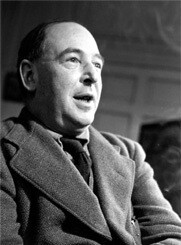
12. Jean Valjean from Les Miserables
Thomas S. Monson quoted famous Broadway musical Les Miserables in his October 2003 talk, “Bring Him Home. :
“One of the longest-running musicals in history is Les Miserables. The story is set in the period of the French Revolution. The principal character in the musical is Jean Valjean. In his heartfelt concern for the young man, Marius, who is going off to battle, he expresses in a song a sincere prayer:
‘God on high, hear my prayer;
In my need you have always been there.
He is young, he’s afraid;
Let him rest, heaven blessed.
Bring him home. …
Bring him peace, bring him joy.
He is young; he is only a boy.
You can take, You can give;
Let him be, let him live.
If I die, let me die,
Let him live. Bring him home.’”
13. Simon and Garfunkel
Elder Vaughn J. Featherstone quoted Simon and Garfunkel’s song “Old Friends, Bookends” in his October 1974 talk, “The Savior’s Program for the Care of the Aged”:
“A popular song says: ‘Old friends, old friends sat on their park bench like bookends, . . . How terribly strange to be seventy.’”
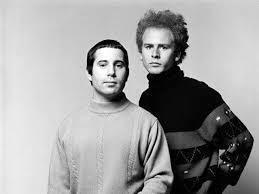
14. Frank Sinatra
In his April 1992 talk “A Prisoner of Love,” Elder Featherstone quoted Frank Sinatra:
“There was a popular song that our generation may remember. Review the slightly adjusted lyrics with me:
‘Away from home tonight you’ll find me,
Too weak to break the chains that bind me;
I need to shackles to remind me
I’m just a prisoner of love.
For one command I stand and wait now
From one who’s master of my fate now.
I can’t escape for it’s too late now;
I’m just a prisoner of love.’”
15. Bing Crosby
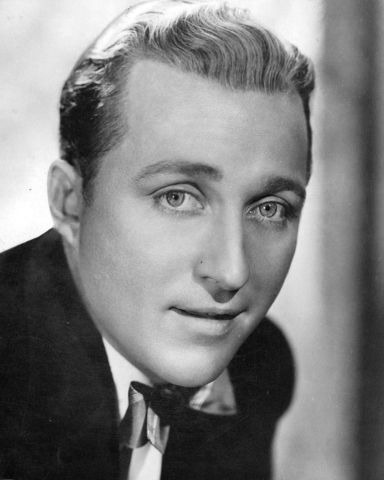
Thomas S. Monson quoted Bing Crosby in his October 1985 address, “Those Who Love Jesus”:
“Today, the challenge which we face and must meet is not that we should go forth on the battlefield of war and lay down our lives. Rather, it is that we, on the battlefield of life, so live and serve that our lives and actions reflect a true love of God, of His Son, Jesus Christ, and of our fellowmen . . . Jesus teaches us: ‘If ye love me, keep my commandments. . . .
“Years ago we danced to a popular song, the words of which were, ‘It’s easy to say I love you, easy to say I’ll be true, easy to say these simple things, but prove it by the things you do.’”
16. Dean Martin
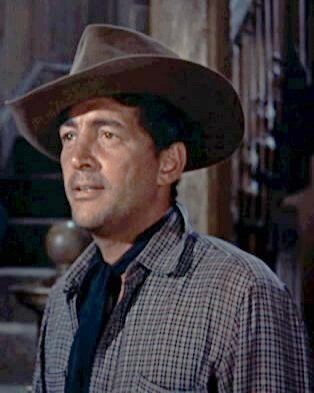
Gordon B. Hinckley quoted Dean Martin in his 1995 talk, “The Light Within You”:
“‘Somebody loves you, I want you to know, Longs to be near you, wherever you go.’
“I have interpreted those words differently from the meaning given by the author. I wish you—each of you, wherever you are—to know that you are loved. You are loved by your Father in Heaven, of whose divine nature you have partaken. And He desires that His Holy Spirit will be near you wherever you go if you will invite it and cultivate it.”
Bonus: Splash Mountain in Disneyland
This isn’t technically a famous person, but it’s definitely worth mentioning. President Thomas. S. Monson quoted Splash Mountain in Disneyland in his April 1998 talk, “Look to God and Live”:
“We were ready to board the boat which would carry us in a vertical dive that evoked screams from the passengers in the boat ahead as it roared down the waterfall and glided to a stop in the water below. Just before taking the plunge, however, I noticed on one wall a small sign declaring a profound truth: ‘You can’t run away from trouble; there’s no place that far!’ These few words have remained with me. They pertain not only to the theme of Splash Mountain but also to our sojourn in mortality.”
▶ You may also like: 5 stunning footnotes from Pres. Nelson’s devotional for young adults everyone should read

